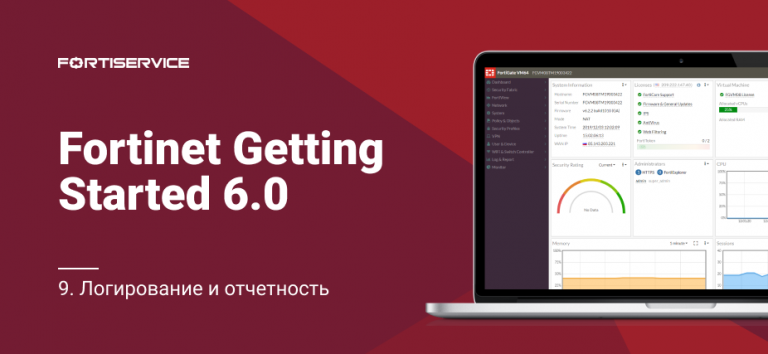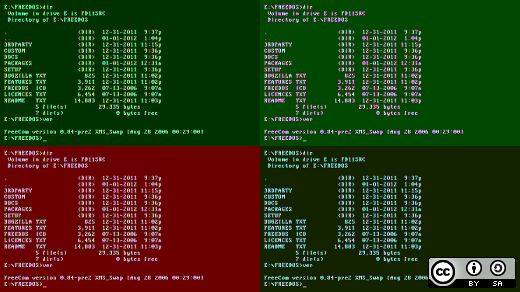What language should the website be written in in 2024?
Sergey Nemchinsky discusses the choice of technologies for creating a website in 2024. He covers front-end and back-end technologies including JavaScript, React, Angular, Vue, PHP, Laravel, Python, Django, Ruby on Rails, Node.js, Java and C#.
Key thoughts:
- The speaker of the video is Sergey Nemchinsky, representing the company FoxMind, which trains developers.
- The issue of choosing technologies for creating websites in 2024 is discussed, depending on the goals and type of site.
- JavaScript is the main language for the front end, and its frameworks React, Angular and Vue play a key role in development.
- For the backend, you can use any popular programming language; the choice depends on the specifics of the site.
- For small sites, it is recommended to use a CMS, such as WordPress, which requires knowledge of JavaScript and PHP.
- For more complex sites, PHP with Laravel, Python with Django, or Ruby on Rails are suitable, with Ruby on Rails losing popularity.
- Node.js on the backend is considered difficult for beginners, despite the popularity of JavaScript.
- Large companies usually use Java or C# for automation, the choice depends on the existing infrastructure.
- Static sites do not require backend development, but in the modern world such sites are rare.
- PWA (Progressive Web Applications) are not widely adopted, despite the support of many companies.
- SEO optimization and mobile responsiveness of the site are important, since most users will access from mobile devices.
Below is a transcript of the video.
Hello my dear! To be honest, the question in the title of this video really surprised me, but it is trending on YouTube and people keep asking. Okay, the question is quite strange, but let’s try to discuss it, because, well, who else will answer such questions if not me? And my name is still Sergei Nemchinsky.
Regarding what to build the website in 2024. Everything very much depends on what the site is for, what kind of site, and so on. You can approach this issue from very different angles. You can, for example, instead of studying what the site is about, look at the trends in the lists of programming languages, which is the most popular now, and so on.
Which programming language to choose for writing a website?
Spoiler, JavaScript. But there is a problem. The face of the site is made using JavaScript. Frontend.
The backend is made using many things, including JavaScript, but this is not the most popular solution there, to put it mildly. It’s somewhere in the second ten, probably. But the face, yes, is made in JavaScript. And you, most likely, will do the face of the site, that is, what the user will see, the user interface, in JavaScript with its frameworks. And frankly, JavaScript frameworks serve the same role on the front end as programming languages do on the back end. From the series, everyone chooses what they like, and there are a lot of different options. There are currently three main front-end frameworks. I once talked about all of them, it will be a video over there. Yes, React is the most popular, on which a large number of solutions are made, it is like a golden mean, it is quite powerful and at the same time relatively understandable for a person who loves JavaScript, but not for others.
Angular, which is very popular in the world of large Enterprise applications and so on, because it is very understandable for server-side developers, for Java and C-Sharp developers. And Vue, the new youth one, which seems to be the simplest, but at the same time the least popular of the trio. Although it is fighting for popularity in such a way that, in general, in principle, if you like Vue, write your face on Vue. But we will dwell on backend technologies in more detail. What your site is intended for will determine what you are most comfortable using to write the backend for your site. The backend, by and large, of a website can be developed in any programming language that exists. Probably, you shouldn’t look at languages that have died, such as Kabolov and Hell, although, probably, it is also possible to develop a backend in them, although, thank God, I have not seen this. But if we take the first 10-15 from the list of the most popular programming languages, then a backend can be developed in all of these.
For the reason that what is the backend? This is just a program that runs on the server, which the front end or mobile application accesses and asks for data. Well, it seems obvious that a program can be written that just works. Can be written in any programming language. Well, that’s what programming languages are about, right? About writing programs. Therefore, in general, it’s possible on any one. How to determine in which programming language it makes sense to develop this application?
Do you need WordPress?
I give you universal advice. If you have a small website designed, for example, to simply represent your company on the Internet, hello, for example, our website, the easiest way is not to develop it in a programming language at all, but to use a CMS, Content management systems. For example, as the most popular, 80% of sites on the Internet are made on it, WordPress, on which, by the way, our website was developed. WordPress, of course, requires certain knowledge from the developer who uses it.
At a minimum, you will need knowledge of JavaScript in order to make a face so that it is dynamic in 2021. For centuries, people have somehow lost the habit of sites where menus don’t open and icons don’t appear, right? Well, this will have to be done. And know a little PHP, because, in fact, WordPress is written in it.
If you need to do some minimal customization there, you will need PHP for this. Here. Further. This closes the niche of all small and early medium solutions.
No problem, a small store, a small business card website, landing page, whatever. I advise you to do all this on WordPress and not bother with crap, because everything is already ready for you and everything is written, you just need to configure it. Further. If your site is a little more complex, for example, you are writing a site for some pharmacy where you can order medications and you need to get some additional certificates or something else so complex, right? Sign up for a visit to some sports club, where you choose a specific trainer and choose him. By the way, this is also possible. There are plugins for WordPress, take a look.
Why choose PHP with Laravel
But if they are not there, then such sites are written for the famous trinity. This is PHP with its Laravel. Python with its Django and Ruby with its Rails. Ruby on Rails has significantly lost popularity at the moment, and therefore in 2024 I would not recommend writing a website in Ruby, and PHP with Laravel or Python with Django, by and large, the choice is almost equivalent. I would still advise choosing PHP with Laravel, simply because I like it better.
Kidding. Because there is still a little more knowledge about development and web development in PHP, and plus PHP is more specialized for working with the web. Python is a more universal language, but in fact their functionality is completely identical. If you know Python and don’t know PHP, develop in Python, no problem. JavaScript is diligently trying to crawl into this same niche, running on the backend in Node.js and several other less common runtime environments.
I strongly advise against using Node.js for a beginner; it is significantly more complicated than the previous trinity, it requires a much higher, higher understanding, and even if you know JavaScript, it will still be easier for you to learn PHP or Python with its framework than to understand it in detail node. It’s noticeably more complicated, but if you really like it, go ahead, a node and JavaScript are a completely normal option. If your site is more complex, more sophisticated, well then I highly doubt that you will turn to this video, yes, because if you are the director of a large company and are now choosing what to write your automation on, well, no, that doesn’t happen. If you are the director of a large company, you have already written a huge amount of automation, because while your company was growing, they definitely wrote something. Even if our company is not very big, we already have a hell of a lot written in our own software.
By the way, our software is mostly written in PHP. Well, who cares? If you are a large company, for example, a bank, telecom, whatever, then most likely, everything is automated in Java. Therefore, you have no choice, and you continue to write in Java.
If you are a consulting company, a company that works with a large number of different Microsoft applications, you, for example, give Word to your clients or Excel or something else, then, most likely, everything is automated on C-Sharp.net. And, again, you have no choice, a large application is written in either one or the other, depending on what has already been established. It’s simple. But there is an even lower niche here, which is before the very first option that I said, this is when you just need to hang up a static page. To be honest, I even forgot a little about this option, because a static page does not require development at all, all you need to do is layout it. OK. Although in today’s world, I generally have a hard time imagining a page that is completely static and does not require anything at all from users and does nothing at all. Why is this?
What’s this? Even Wikipedia, sorry, it’s not fucking static information. In fact, it is, strictly speaking, dynamically generated from what users created there. And there is very complex backcount logic. About it. Therefore, in the modern world, there is virtually no static content. Another topic about which I wanted to say a few words.
The bitter fate of Progressive Web Application
This is a Progressive Web Application. Popularly PWA, but actually PWA. But no one says that. PWA. This is when, strictly speaking, from a site, from its HTML, they make a type of application that is installed somewhere. At the moment, the technology is supported by many people. You’ve probably seen, yes, situations where you, relatively speaking, seem to install an application, but in reality it’s just a page that is installed on your phone or computer. Well, at the moment, to be honest, it has not gained much popularity, despite the fact that many companies are running around with this thing. I don’t even know if it’s worth getting involved with this; it seems to me that it’s a stillborn idea.
On the other hand, well, someone is working with him. Maybe I’m wrong, write in the comments, I’m willing to bet. There is another important aspect that I definitely wanted to mention. You must understand that if you place a website on the Internet, then you are probably doing it for some purpose.
Even if you are a developer, you have to understand, well, just a developer, like, I don’t touch your business affairs, you were told, I was paid and posted. But, let’s be honest, a website is placed on the Internet in order to be found. No one will type the name of your site with their hands in the address bar. I have a hard time imagining such a situation. There are situations when this is a landing page, for example, some kind of advertising is launched there and a click from a banner or advertising article leads to this page. This also happens, of course, then there is no need to look for it. But in the vast majority of cases, the site needs to be made suitable for search engine optimization. The same SEO Search Engine Optimization. So, if your site cannot be found on the Internet, it actually does not exist. And you need to understand that if your site is written manually, then quite a lot of work will be required to optimize it for SEO.
SEO-optimization
This is why, by the way, I recommend making small websites on WordPress, which was initially designed for SEO, and all the plugins, all the necessary conditions for optimizing for search robots are already there. Remember this, that at the end of the day, your development, your job as a developer does not end with just developing it and making it work. It will continue and continue after the SEO specialist attacks you and says, this page loads slowly, it opens incorrectly in the mobile layout, there’s something else, and that’s all. Oh, yes, by the way, about mobile adaptability.
You must understand that the 21st century is here and the vast majority of your customers will not access your website from a computer. He will log in from this, from a phone, or tablet. Therefore, you need to remember that, despite the fact that you, as a developer, most likely look at your site primarily through a computer browser, it must work perfectly in a phone browser, because that’s how your users will mainly use it clients.
And this is a very unpleasant knowledge for a developer, I know, it bothers me myself, because on the computer everything is wide and comfortable, and so cool, but here there are some crap narrow screens, nothing is inconvenient. But we must remember this. I hope I have covered all the questions that were interesting to you about this.





